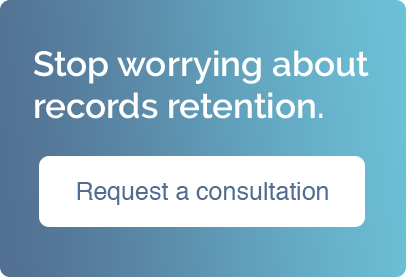Social Media and Your Record Retention Schedule
Social media has become universally ubiquitous these days. Top social media sites register their monthly users in the billions. The disruption in modern communication that this phenomenon has caused is pushing more and more public and private organizations to utilize these services to reach out to the public. However, organizations that operate under the laws of record retention should note that social media may qualify as a public record that is subject to requests under the Freedom of Information Act.
What becomes the central concern for social media use is the content of the information that is being disseminated, not its format. Just because social media posts seem“here today, gone tomorrow” does not mean that they are irrelevant. Despite their ephemeral nature, social media posts are not categorically exempt from a record retention schedule.
For example, in the state of Maine, the definition for a public record is: “any written, printed, or graphic matter, or any mechanical or electronic data compilation from which information can be obtained.” That is an incredibly broad definition into which social media most surely fits.
Because of this, social media activity should be retained and archived in accordance with your local information retention laws. Again, the nature of this retention should be derived solely on the social media content and nothing else. So a post containing a detailed and substantive complaint would likely need to be retained on a different schedule versus something that deals with a simple logistical announcement.
If social media activity is not going to be retained in mass, then it is recommended that categories for posts be established which will dictate how the social media activity is archived. This will keep a clear, organized structure that allows social media to remain a useful part of your marketing and outreach, without becoming a liability.


